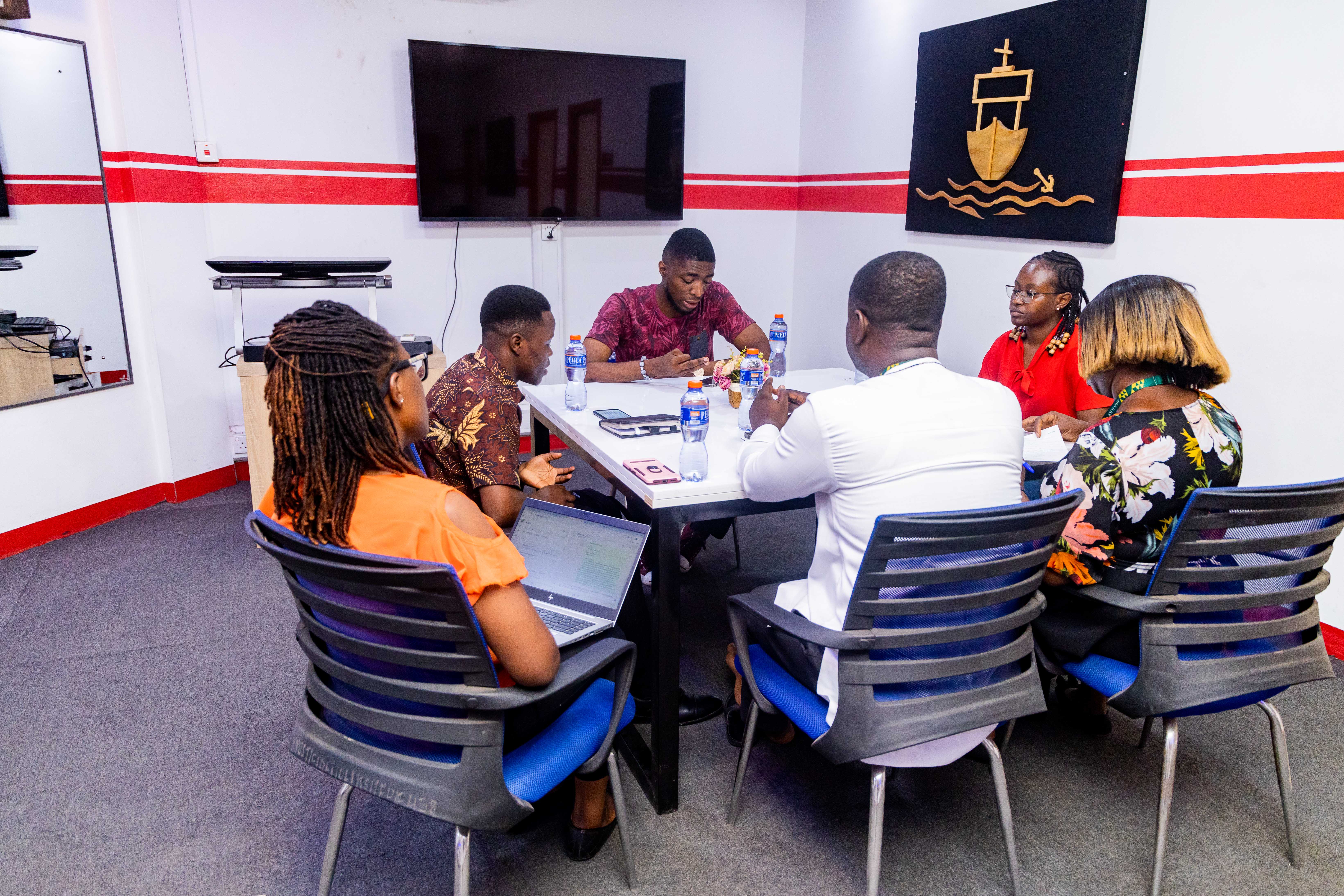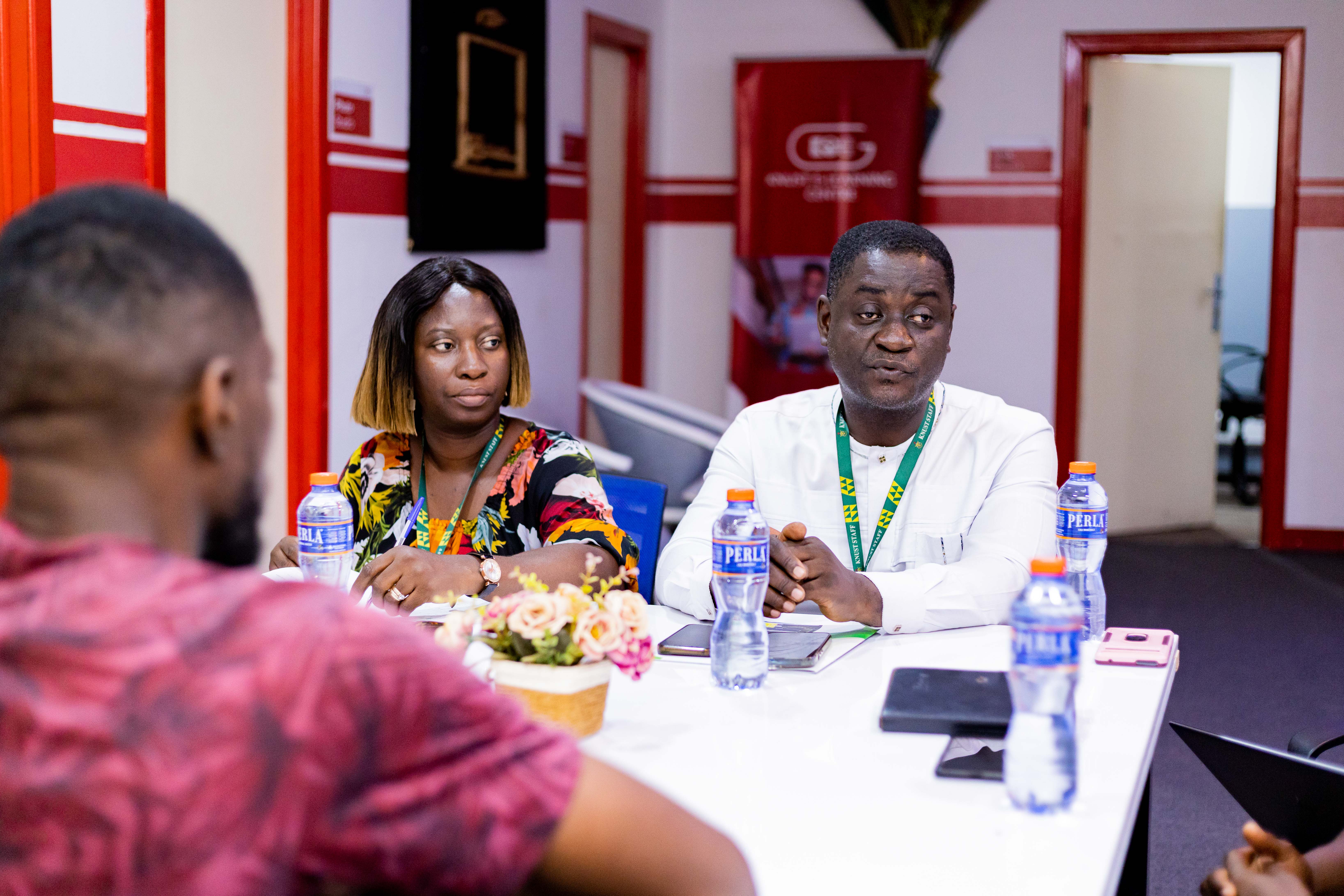ISA KNUST seeks partnership with KNUST E-Learning Centre for training and support
The leadership of the International Students Association of KNUST (ISA KNUST) has engaged the KNUST E-Learning Centre in discussions on partnership and training opportunities for international students.
ISA KNUST President, Pascal M. Muzungu led the team, which included Fondop Tene Noe Othniel, ISA Project Coordinator, and Njietcheu Ngamaleu Reine, ISA Head of Academic Committee.
They were received by the Director of the KNUST E-Learning Centre, Professor Eric Appau Asante, and Senior Assistant Registrar, Abigail Dzama Anderson.

Muzungu explained that the association wants to build a long-term partnership that will benefit current and future international students.
“We have seen the work the E-Learning Centre is doing, and we are inspired. We want to establish an ongoing partnership so that incoming leaders of the association can continue working with you to train international students in various skills,” he said.
Opportunities for collaboration
Professor Asante welcomed the partnership, noting that international students face challenges in learning and engagement.
“If others need support, international students need it even more. When you vacate, there is always the feeling of being far from campus, but with e-learning, distance does not matter,” he said.
He suggested that the partnership could go beyond training and include areas such as multilingual learning resources, digital engagement, and webinars for international students. “We have been working with student groups like the SRC and others. We are happy to work with you. We need to understand the scope of international students, what you want to achieve, and we will also introduce you to resources that you can use immediately,” he added.
ISA KNUST indicated that the association represents about 500 international students from over 25 countries, with about 20 percent being French speakers.
Muzungu explained that communication among international students is managed through structured WhatsApp groups, with updates passed through country representatives.

Addressing language barriers
Professor Asante highlighted the need to make e-learning resources more accessible to non-English-speaking students.
“So far, our learning materials and guides are in English. This discussion is making us think about translating some of our multimedia content into French. Simple guides like how to log into the virtual classroom or take online exams could be made available in multiple languages,” he said.
Muzungu welcomed the idea, noting that ISA KNUST had already tested similar approaches.
“In January, we worked with the Dean of Students’ Office to welcome freshers. We provided guides in French, and many students appreciated it. Expanding this to online learning resources will help more people feel included,” he said.
Training and engagement plans
ISA KNUST proposed that training sessions could be organized during the vacation period when most international students remain on campus.
“We think the best time for training would be the break periods. While local students go home, many international students stay on campus.It will keep us engaged and help us build skills,” Muzungu said.
Professor Asante explained that the E-Learning Centre offers two types of training: university-funded sessions and paid courses.
“There are trainings sponsored by the university or student associations, and others that individuals pay for. If ISA can organize and sponsor a session, we can provide facilitators. There are also open courses that international students can register for,” he said.
Fondop Tene Noe Othniel inquired about sponsorship opportunities for ISA members.
“We want to know if we can get support to sponsor some of our members to take part in the training,” he asked.
Professor Asante responded that arrangements could be made based on available resources.
“We can explore sponsorship options, but even if funding is limited, we can look at discounted fees for ISA members,” he said.
Developing an e-companion for international students
Another discussion was the possibility of creating an online companion for international students.
“We could develop an ‘E-Companion’ that provides guidance on how to navigate KNUST as an international student. It could include virtual tours, step-by-step onboarding, and essential student services. This would help students even before they arrive in Ghana,” Professor Asante said.
Muzungu suggested adding a language-switching feature to make the platform more accessible. “Many international applications have an option to change the language. This could be helpful for students who are not fluent in English,” he said. The meeting ended with an agreement for ISA KNUST to submit a formal request for collaboration.
ISA KNUST will work with the E-Learning Centre to outline specific training modules, explore translation options for learning materials, and develop engagement programs tailored to international students.
Published: 20th Feb, 2025 Source: KNUST E-Learning Centre
